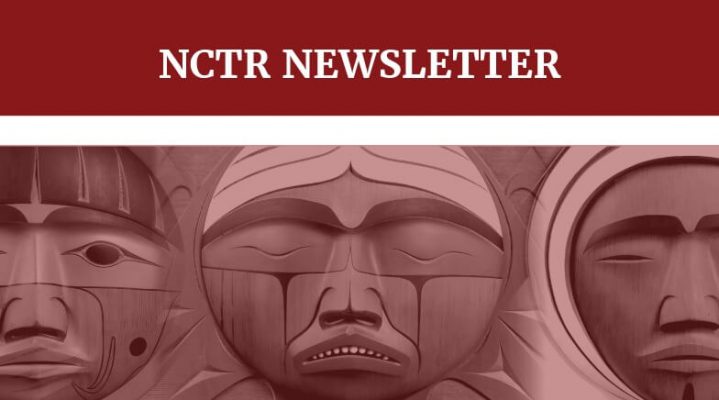Meet the Survivors Circle
About the Survivors Circle
Residential school Survivors gave Indigenous and non-Indigenous people the opportunity to begin this journey: The gift of reconciliation. It was Survivors that demanded government and church entities to be held responsible and held accountable for their actions. They also called for the creation of the Truth and Reconciliation Commission of Canada (TRC). Survivors continue to be the foundation of truth and reconciliation work in this country.
The Survivors Circle guides the National Centre guides the National Centre for Truth and Reconciliation (NCTR). These members:
- Ensure that Survivors’ voices and perspectives remain central to NCTR programs and policies
- Provide guidance and advice to the NCTR, the Governing Circle, the University of Manitoba and partners on anything important to the broader Survivor community.
Read more about the NCTR Survivors Circle
Terri Brown, Survivor and the Chair of the NCTR founding Survivors Circle
I had great pleasure serving on the first Survivors Circle of the NCTR. It is important to have the Survivor voice in the development and decision making of the Centre. This will ensure inclusivity, balance and truth in the reflection ofour legacyfor future generations.
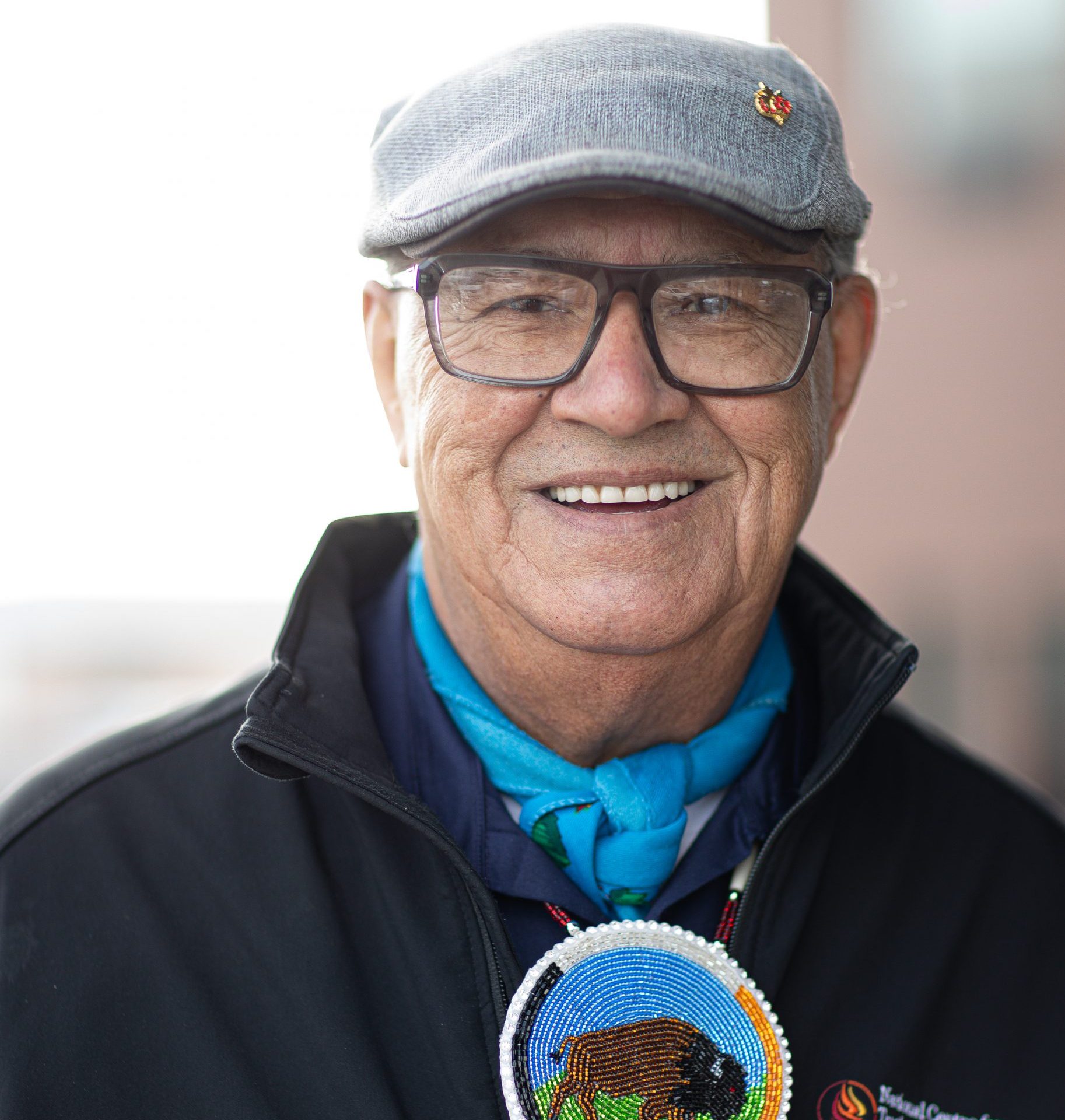
Eugene Arcand
A Cree from the Muskeg Lake First Nation in Saskatchewan, Eugene Arcand spent nine years at the St. Michael Indian Residential School in Duck Lake and two years at the St. Paul’s Lebret Students Residence, both in Saskatchewan. First Nation Sports Hall of Fame inductee, Mr. Arcand has dedicated much of his time to organizing regional and national events – First Nations sports events, cultural events, tourism events, and events geared to the advancement of First Nations youth.
Over the past few years, through the Indian Residential Schools Survivor Committee at the TRC and the NCTR Governing Circle, Eugene has worked to ensure that both the public and Survivor communities are kept informed of the developments and processes associated with the Indian Residential School Settlement Agreement. Eugene was successful because of the support and love of his family and wife Lorna Arcand, who he has been married to for 48 years.Together, they raised three children, seven grandchildren and three chapan.

Francis Dickie Yuzicapi
Francis comes from a culturally diverse heritage which represents the majority of the Plains cultures found in Saskatchewan to this day: Ojibway, Cree, Metis, and Dakota. Dickie is unique in that he was raised by his great-grandparents who taught him traditional teachings before attending residential school. Dickie is a Survivor, and a multi-generational trauma Survivor. Dickie is currently the owner and chef of the Sioux Chef Catering Company and consults on all facets of indigenous culture. He is a master storyteller and experienced speaker who can provide his own ancestral context and historical connections in ways that bring the Truth and Reconciliation recommendations to practical reality. His workshops are led with great care to his family’s stories and to all participants’ level of Reconciliation. It is about creating understanding with care to lay the groundwork for what needs to be done to heal.
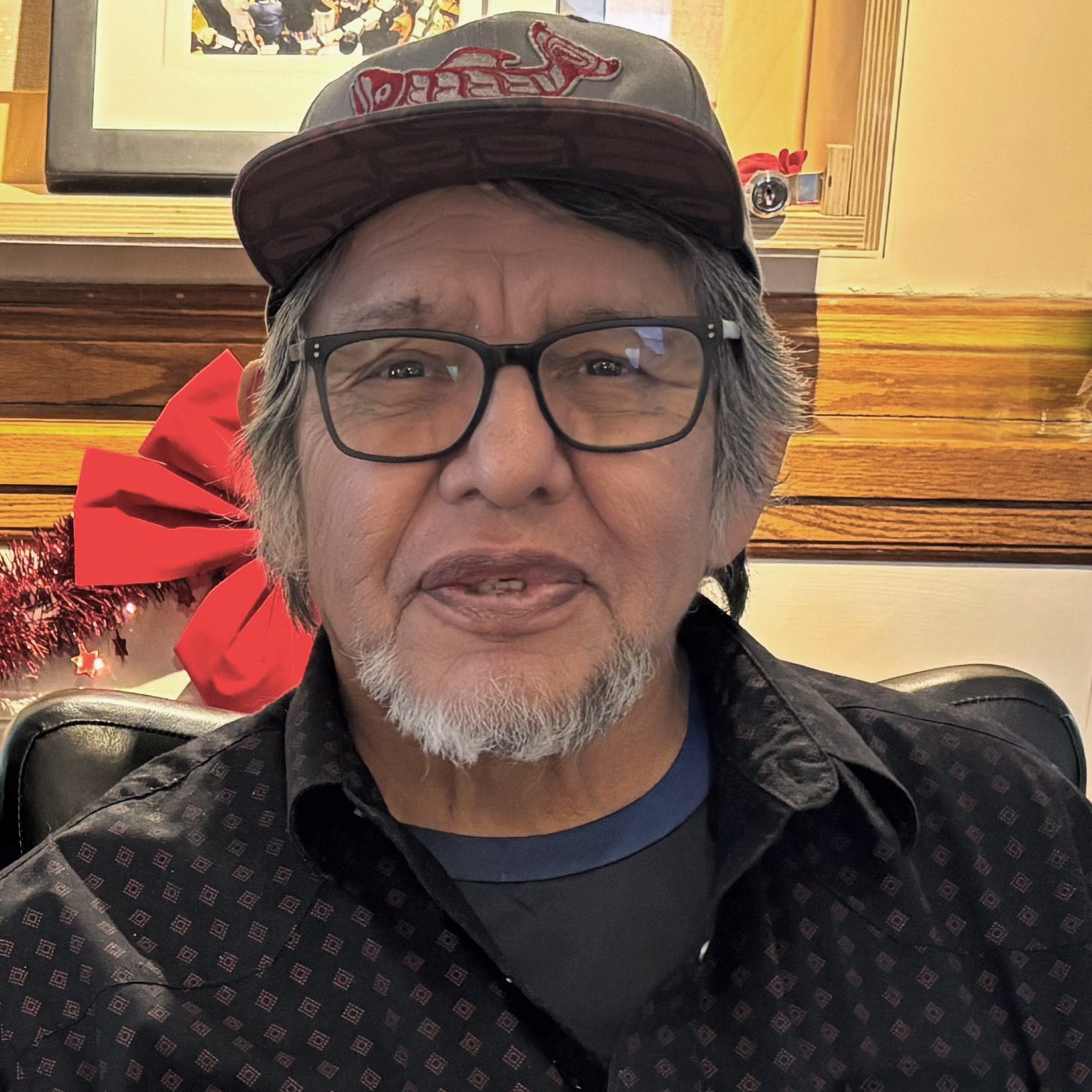
Dennis Saddleman
Dennis is Nlaka’pamux nation from his mother’s side and Syilx nation from his father’s side. He attended the Kamloops Indian Residential School for 11 years. Before residential school Dennis had a huge family, today, everyone passed away which included his parents, grandparents, brothers and sisters and all his uncles and aunts.
There were many hardships and struggles with drugs, alcohol and especially suicides. With determination and perseverance Dennis went on his healing journey. He shares his residential school stories and poetry at elementary schools, high schools, colleges and universities. His poetry his powerful and it gained recognition all over the world. His biggest achievements, he has been sober for 44 years and he published a book titled, Word Warrior. His ancestor’s name E’Welsh which means, Great Uncle. And because he is a writer, his family and friends call him Word Warrior.
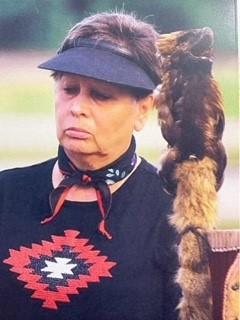
Barbara Cameron
Barb Cameron’s spirit names are “Neegaunibinessikwe” meaning “Female Leader of the Thunderbirds” and “Begonegeezhig” meaning “Hole in the Sky”. Barb belongs to the Wolf Clan and is fourth degree Midewiwin Shkabehikwe to Minweyweywigaan Midewiwin Lodge in Roseau River, Manitoba. She is active in reconnecting, learning, assisting, and maintaining the Traditional Knowledges and the practices of Midewiwin ceremonial teachings at the Lodge.
Barb is a member of Long Plain First Nation, a well-respected Knowledge Keeper, and is a third-generation Indian residential school Survivor. She remains a fluent Anishinabemowin speaker despite the challenges faced during Barb’s attendance at the Brandon Indian Residential School.
Barb began work as a Court Interpreter in the Manitoba Provincial Court System under the tutelage of Angus Merrick. Later in her career, she played an essential role as an interpreter and statement gatherer on behalf of residential school Survivors during the Truth and Reconciliation Commission’s national hearings. Aside from being a Survivors Circle member, Barb is a Crisis Counsellor and Mental Health Therapist for remote Indigenous Communities. She continues to work with Indigenous communities as a Knowledge Keeper by restoring connections with their Spirits and their way of life as given to us from the Creator.
“I recognize and take responsibility for my own unintentional modelling of my own trauma to my children, and grandchildren, who continue to be impacted today, and into the future. I hope in doing so, this will stop the destruction of our families. The first reconciliation needs to start with myself. I hope that this provides you with a glimpse of who my Spirit is. Miigwetch.”
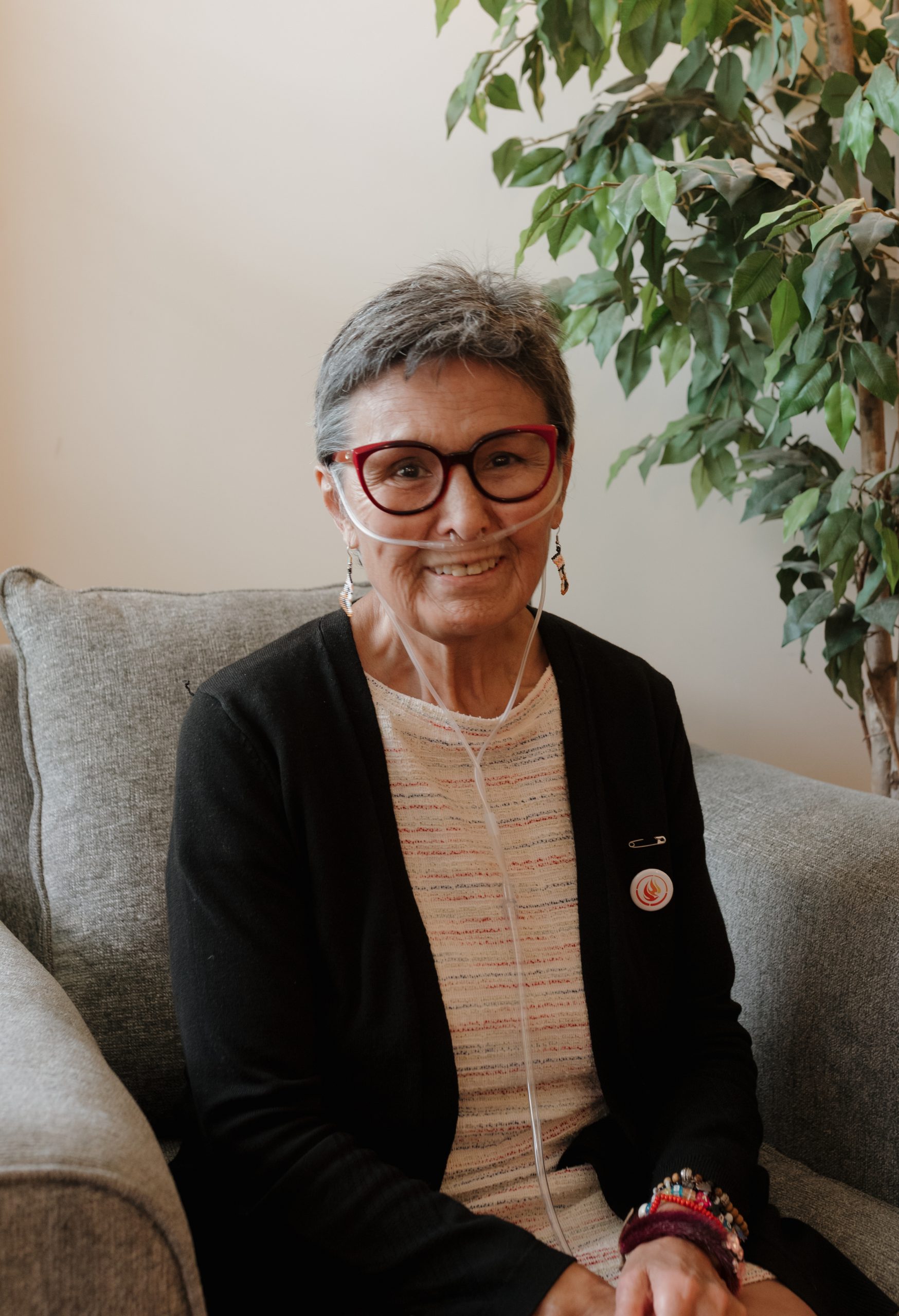
Edna Elias
Edna Elias was called by her grandmother, “Haattuliarmiutaq”, meaning “a person from thin ice” because she was born on a fishing lake in the fall. Thus the reason why she loves ice fishing in the fall and spring.
A teacher by profession, Edna is an Inuit language and cultural advocate. She has lived and breathed her culture in an urban setting; showcasing it where and when she can at Edmonton events. She shares her cultural knowledge through presentations at educational institutions and elementary schools in and around the city. Teaching Inuinnaqtun, the dialect of the Copper Inuit of western Kitikmeot in Nunavut is another passion to train adults, language teachers, staff of pre-school and daycare programs, educators and parents of small children.
After five years as Commissioner of Nunavut, Edna had returned to her home community of Qurluqtuq, Nunavut, the most westerly community in Nunavut. Since her return home, she was heavily involved in her community; initiated a not for profit greenhouse society, opened her home to women to learn traditional sewing and fur preparation and is one of the Ayauqtiit (Guidance) members whose sole purpose is to give advice to the two schools. Volunteering continued to be a pastime. Most recently she and two former educators had opened a business to promote the preservation and retention of Inuinnaqtun through language courses, provision of educational and cultural orientation and advice, program and event planning, production of Inuinnaqtun reading material and to support the language programming in the schools.
All of the above changed and stopped quickly for Edna when an illness affected her performance and forced her to relocate to Edmonton where she could access better medical care and services. “I am happy to say that I have learned to live within my new limits and do NOT let my illness control my life,” says Edna.
Currently residing in Edmonton, Edna has been actively involved in a number of Indigenous Advisory Circles as a voice for Inuit. As of late, she joined the Grant MacEwen University Indigenous Advisory Council, the Royal Alberta Museum Indigenous Advisory Council, the Edmonton International Elders & Knowledge Keepers Circle on the project, Indigenous Spaces, the Indigenous Advisory Council for the City of Edmonton and the Indigenous Advisory Council on the project, Towards Home (curbing homelessness).
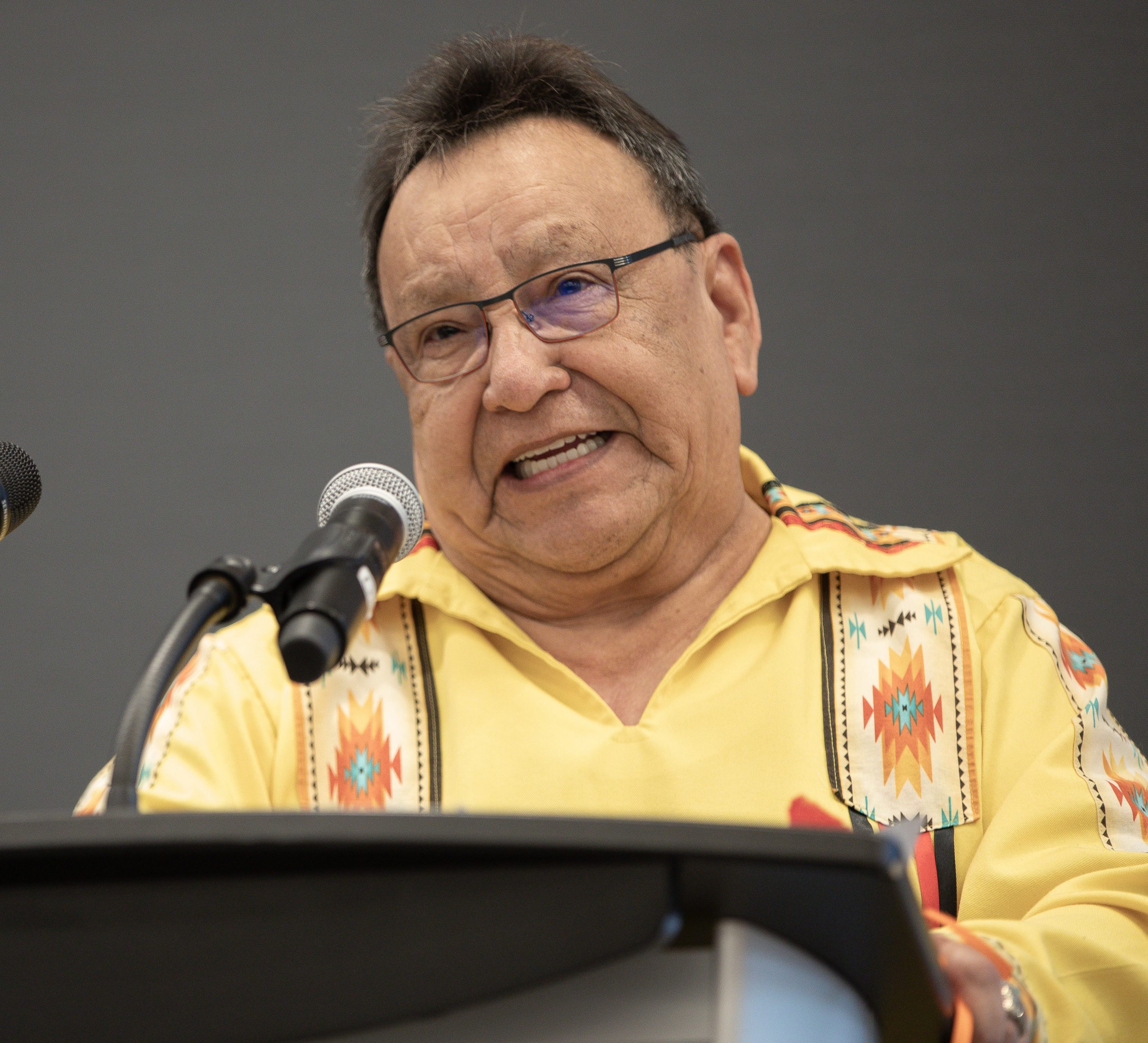
Laurie McDonald
Laurie McDonald, aka Marvin, aka Wabamum was raised by three powerful women; his grandmother Marie Mary Thomas (Hope), his birth mother Veronica Thomas, and my mother’s sister, and his adoptive mother Antonette McDonald.
Laurie entered, and survived Ermineskin Residential School in 1963. He then went on to graduate from university with a Bachelor of Education. Having specialized in children with developmental issues (special education) and teaching for 27 years in various schools across Canada.
Laurie switched in 2001 into the field of Child Welfare as an investigator and child protection social worker for the Ministry of Family and Child Services, later to become Vancouver Aboriginal Children and Families Services. He spent 10 years in service with this agency with all good intentions of retiring however, the Creator had other plans for him. Laurie was employed with Indigenous Perspective and the Ministry of Children and Families in Victoria, BC as an instructor for social workers in delegated agencies.
Laurie retired in March of 2019 and returned home. Although he was in the top of the field, Laurie felt it was time, and has no regrets. He is inspired by his people in Enoch and marvels at their resilience, and will continue to exercise and use his gifts wherever needed.
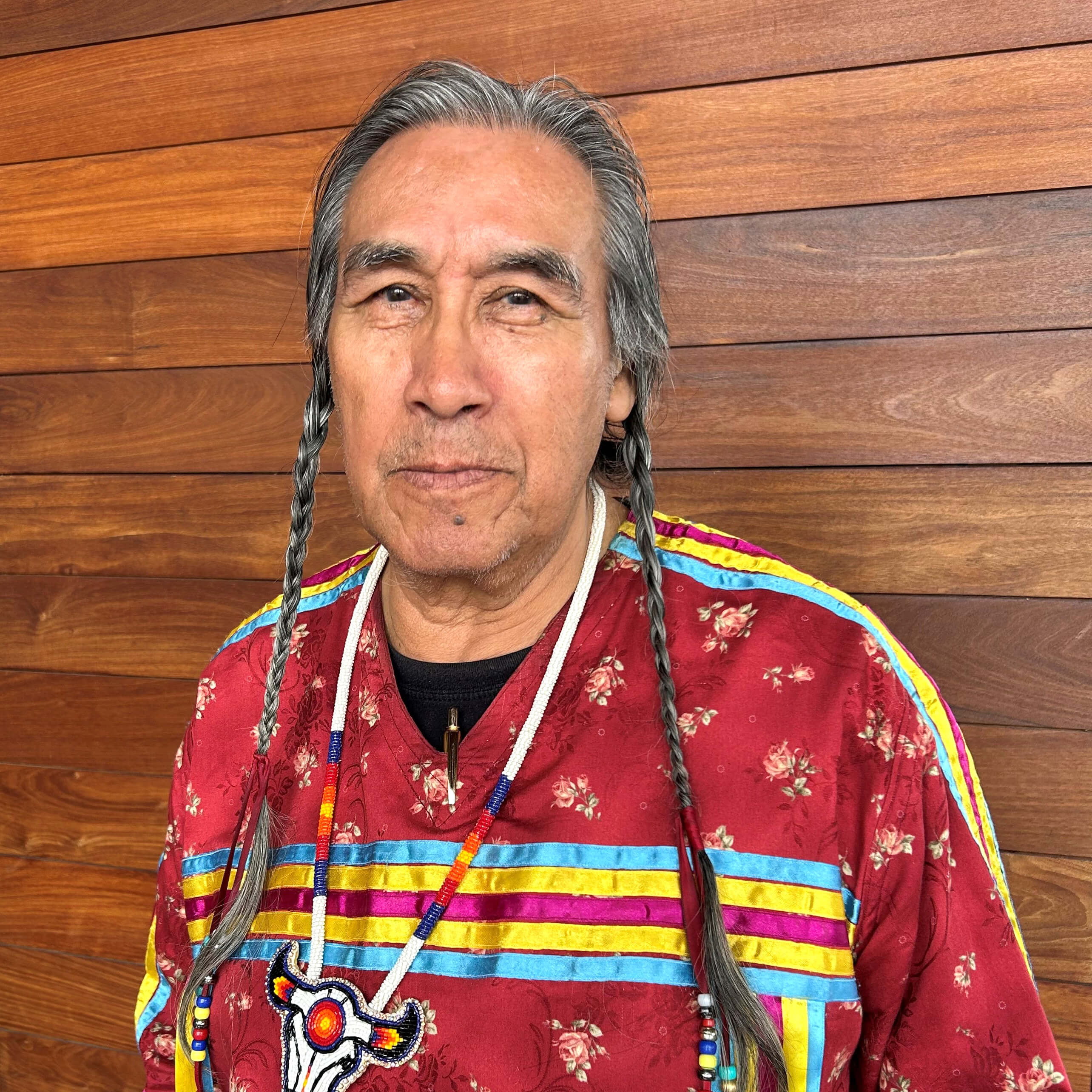
Dr. Antoine Mountain
I was one of the children whom the grandparents didn’t want to let go of. We lived in the mountains in the far north and I was sent to the first of three residential schools when I was nine. We were taken by a barge boat all the way from my home in Radelie Koe, Fort Good Hope, Northwest Territories to Aklavik, picking up other children along the way.
The second residential school I was sent to was the notorious Grollier Hall in Inuvik, where many well-documented atrocities against Indigenous children occurred. I spent a total of 12 years at residential schools. My high school years were spent in Fort Smith.
The reason I have chosen to be part of the National Centre for Truth and Reconciliation’s Survivors Circle is out of concern for today’s youth. Many of the serious issues facing today’s youth are due to intergenerational residential school trauma. They know that our communities have serious social problems, but they haven’t necessarily been taught the reasons why. I want to help increase this awareness.
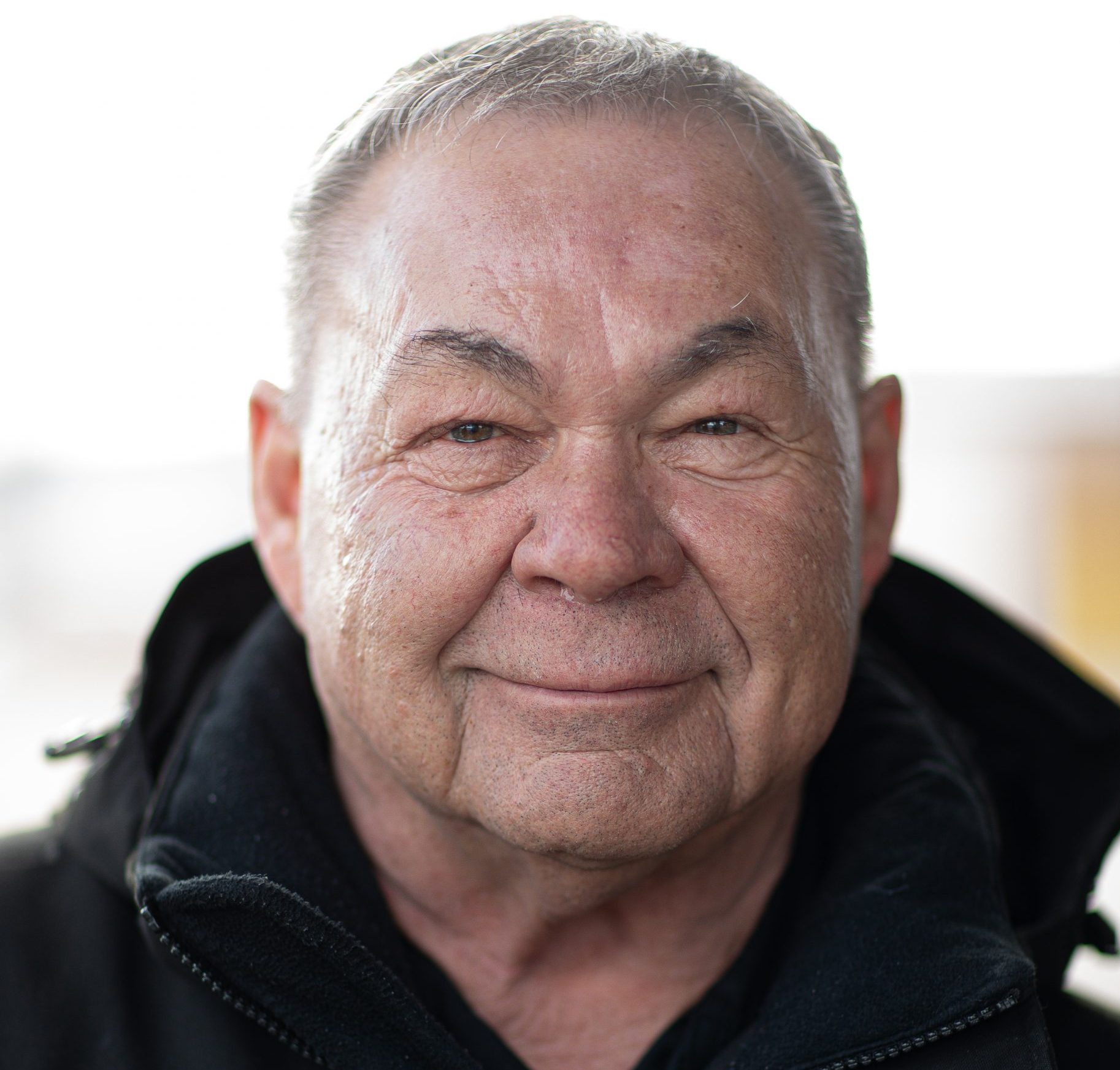
Brian Normand
Brian Normand is a Metis/Michif descendant from the Red River Settlement and a product from the Residential School System. Married to a proud Metis Woman (Claudette) for 45 years, together they have 3 proud Metis daughters and one son who passed on to the spirit world. He also has 7 grandchildren who keep him very busy.
Altogether he has worked as a spiritual caregiver/elder for the past 20+ years in the justice system (Agassiz Youth Center, Marymound Treatment Center, Stony Mountain Correctional Facility, Metis Child and Family Services, Native Clans, and Native Women’s Transition Center) providing culturally relevant care and therapy to Metis, First Nations and Inuit children, youth, and families. He previously was a member of the board at Metis Child Family Services and Indian and Metis Friendship Center.
During his tenure with organizations he has participated, developed, implemented, and delivered mandatory Aboriginal Awareness Training in addition to building a comprehensive cultural program for individuals involved in the Manitoba Justice System and Child Welfare System. He represented our Metis people at the Aboriginal Justice Inquiry.
He was also one of the 71 selected leaders of the world who went on a pilgrimage in Ange, France for collaborative leadership promoting Metis culture, heritage and spirituality.
As well under the mentorship of nationally recognized Grandmother and Elder Gladys Cook, He practiced in conducting the spectrum of Aboriginal ceremonies including Healing and Sharing circles and Longhouse ceremonies.
Throughout time he has built strong partnerships with non-Aboriginal and Aboriginal organizations for the betterment of our people. He was also nominated for the Manitoba Excellence Award in 2002.
Brian Normand has overcome many challenges in his lifetime, from being a residential school Survivor, to the recent loss of his wife, which has not dulled his spirit and zest for life. Brian continues to move forward, and models this for others.
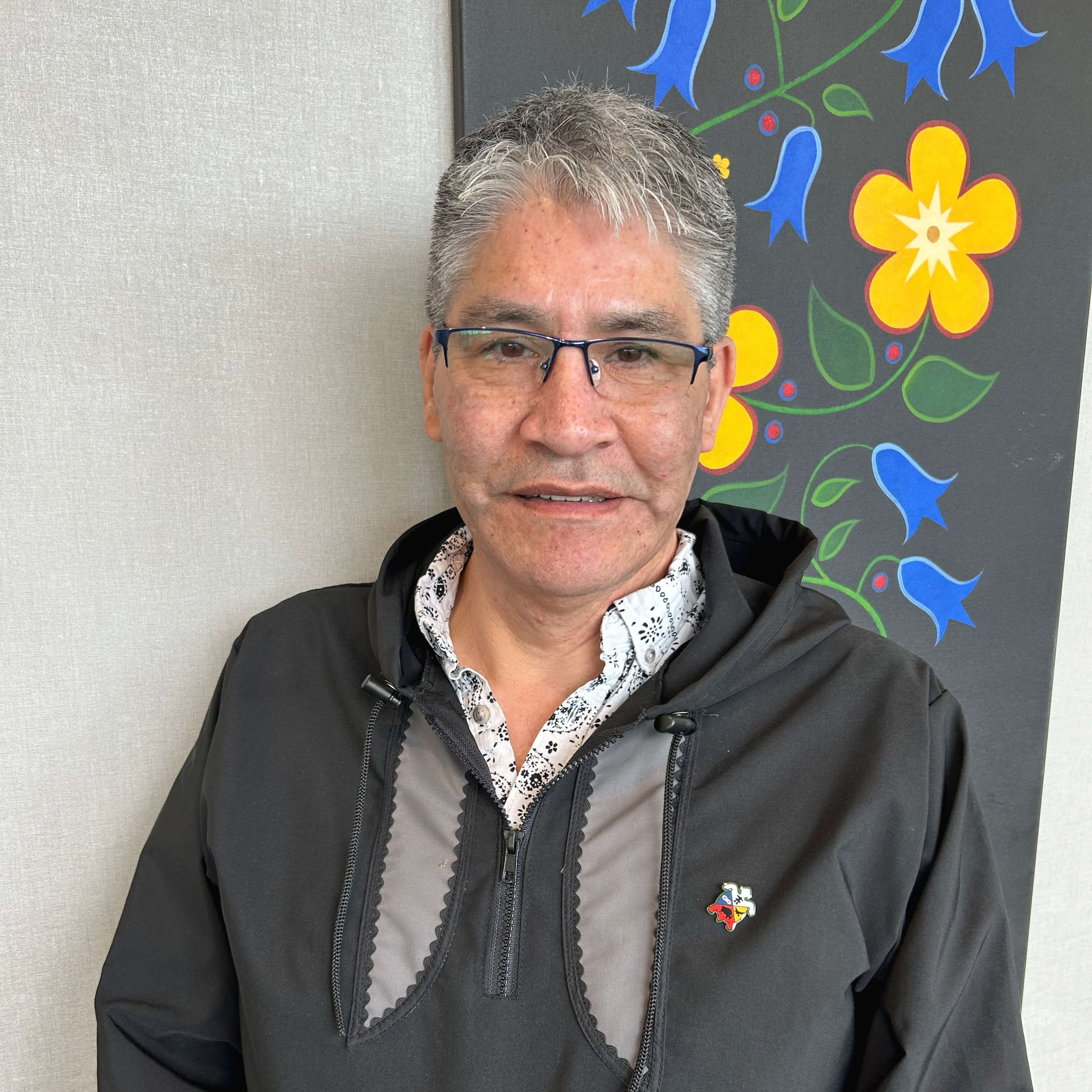
Jerome Gordon
Originally from Aklavik, Northwest Territories, Jerome now lives in Inuvik. He grew up with his grandparents, Danny A and Annie B Gordon. His great-grandparents, Alex and Hope Gordon, and Rev. Jim Sittichinli and his wife, Julia Sittichinli, were also part of his upbringing. Jerome spent part of each year growing up on the land during the busy Muskrat season in the Mackenzie Delta. He later attended Grollier Hall Residential School in Inuvik, where he completed high school.
Jerome has held many leadership positions in his community and region over the years, serving as a hamlet Councillor and Deputy Mayor of Aklavik for several terms. He enjoys advocating for and representing his community and the people of the Mackenzie Delta.
Jerome worked as an Indian Residential Schools Resolution Health Support, providing vital assistance to people in his region throughout the Indian Residential Schools process. He is currently a mental health and wellness manager for the Inuvik Community Corporation and continues to support the residents of Inuvik and the Mackenzie Delta with healthy living programming.
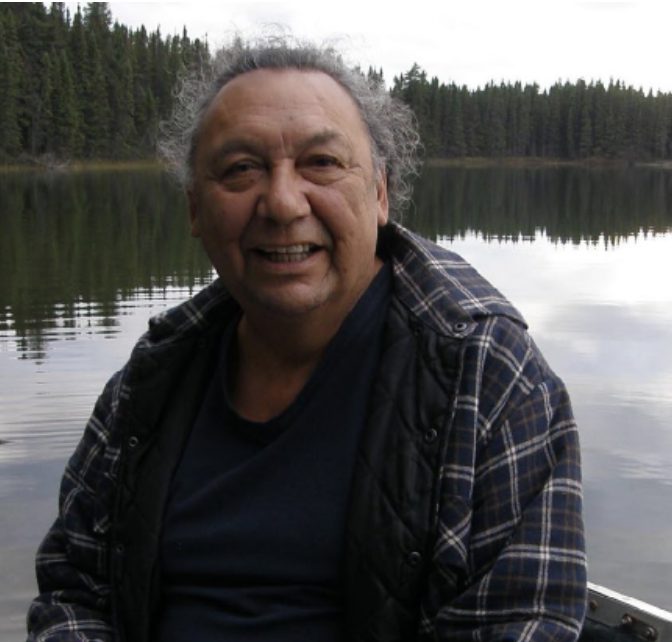
Richard ‘Ejinagosi’ Kistabish
Richard Kistabish is an Anicinabe (Algonquin) from the First Nation community of Abitibiwinni, Quebec, Canada. Richard was born Ejinagosi, a name that predestined him to have an impact, since it means “the one who tells”. Therefore, he could not remain silent in the face of the cultural genocide of Canada’s First Peoples.
He fluently speaks French and English, as well as Anicinabemowin, his traditional language. He grew up in the boreal forest on the shores of the Harricana River, where he was raised in his language, learning to practice the culture of his ancestors, until the age of six. He was then sent to the Indian residential school in St-Marc-de-Figuery, near Amos, where he lived until the age of 16.
Having lived through ten difficult years at the St-Marc residential school, the education of Anicinabek children in their language, immersed in their culture and surrounded by their families, quickly became an important issue for Richard. While he was chief of the Abitibiwinnik, he was instrumental in bringing school to the community so that children would no longer have to leave their families to study in Amos.
For decades, Ejinagosi has lent his voice to a nation that is still known as the “invisible people”. His dedication has brought new visibility to the Anicinabe people through the implementation of innovative projects. To have an Anicinabe sitting on an international working group would be a source of pride for the entire nation and proof that the years of silence and invisibility are a thing of the past. Richard is an Anicinabe symbol of resilience, like many people in his nation, but he is also a strong political figure and a man of action.
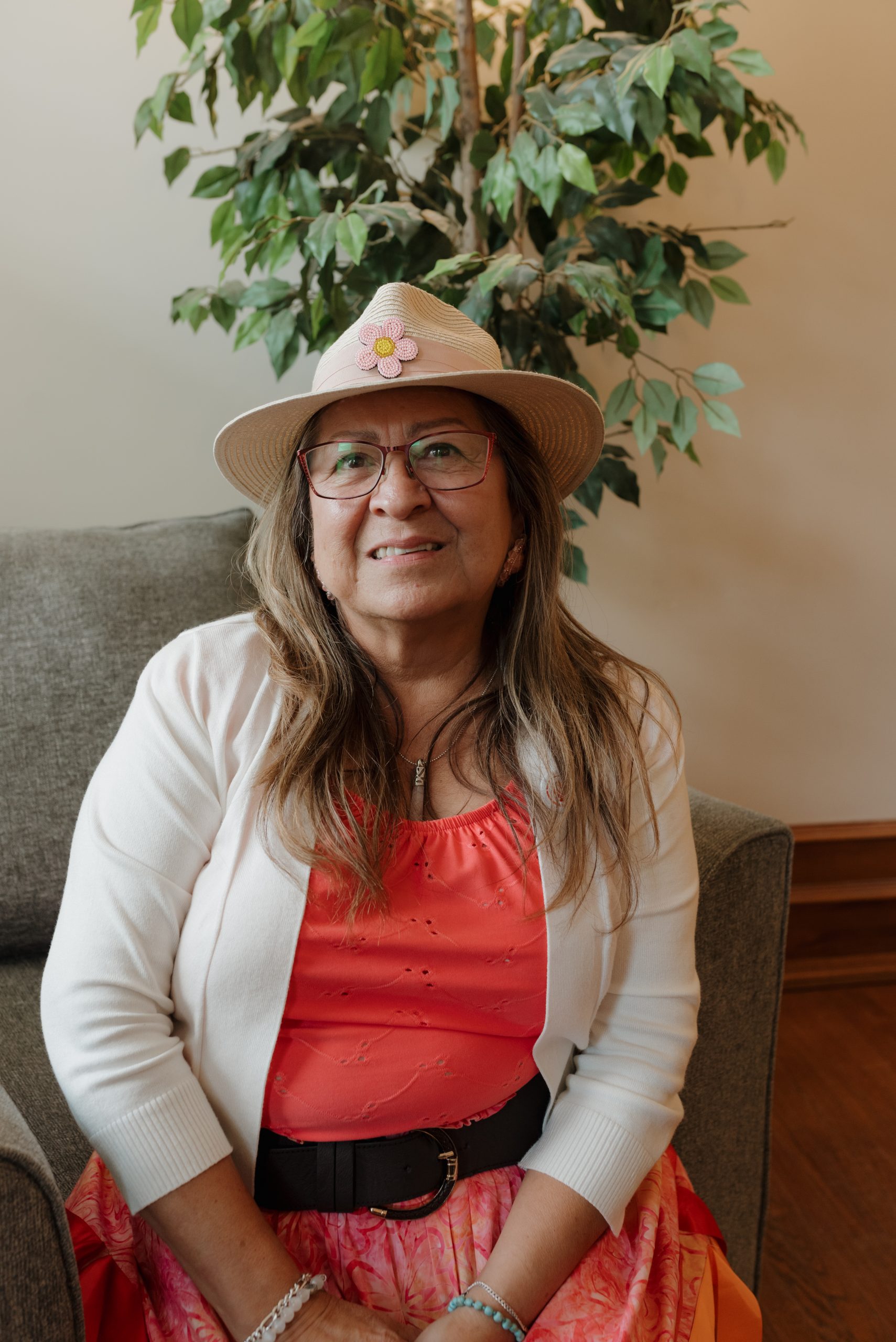
Dorene Bernard
Kesatum tan teli L’nuwey, Kiwnik Clan, Sipekne’katik, Mi’kmaki, is a traditional Mi’kmaq woman, of the Sipekne’katik Band, residing in Indian Brook, N.S. She is the mother of 4 children and grandmother of 9 beautiful grandchildren. She is a Survivor of the Shubenacadie Indian Residential School, the 3rd generation to attend within her family. Dorene earned a BSW Degree at Dalhousie University in 1991, and her MSW in Aboriginal Field of Study at Sir Wilfrid Laurier University in 2013. Recently, she coordinated the IRS Legacy Project at Mi’kmawey Debert Cultural Centre, working with survivors and families in the Atlantic region to document the history of the IRS Legacy and survivors’ profiles for the archives, which she continues to do.

Abraham Bearskin
Abraham Bearskin, Miywaabinwaaskum “One who gives new life” was delivered in a traditional manner by four midwives (Grandmothers) in Mitchuap at Fort George. Abraham’s parents, Daniel and Mary Bearskin, raised him on the land, learning Cree teachings and the traditional way of life until the age of 8, at which time, he was taken away to residential school.
For nine years he attended three separate residential schools: St. Philip’s, Bishop Horden Hall, and La Tuque residential school. In these institutions, he survivors abuse which continued to affect him after into his adult life. At 17 years of age, he went back home to relearn the traditional way of life. Later he finished his high school and earned a bachelors degree at McGill University.
Abraham has served in various capacities within the Cree Board of Health, Social Services of James Bay, and Director of the Niishiyuu Department responsible for Cree traditional healing services and practices.
Currently Abraham is well into his healing journey and has spent decades reconnecting to the traditional way of life that he was raised with as a child, prior to residential school. He is passionate and dedicated in healing others work through their trauma. As a traditional healer, he helps by working with Eeyou (James Bay Cree) traditional ways of healing including sweat lodges, fasting, and sun dancing. He conducts workshops, speaks at conferences, and is heavily involved in land-based healing, always putting his heart into his work.
NCTR’s spirit name – bezhig miigwan, meaning “one feather”.
Bezhig miigwan calls upon us to see each Survivor coming to the NCTR as a single eagle feather and to show those Survivors the same respect and attention an eagle feather deserves. It also teaches we are all in this together — we are all one, connected, and it is vital to work together to achieve reconciliation.

